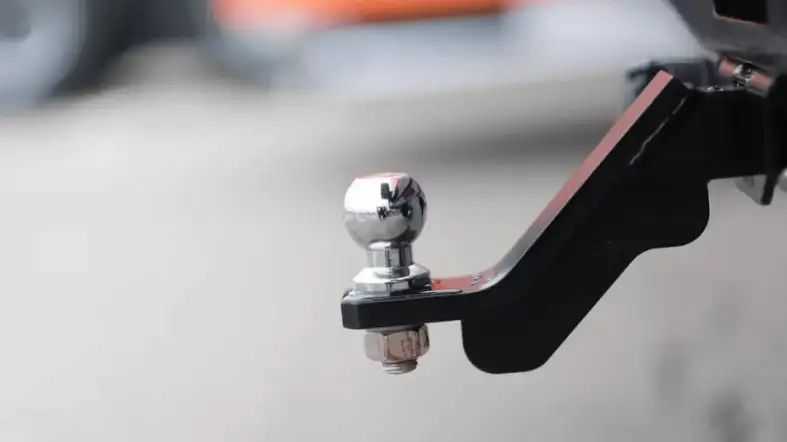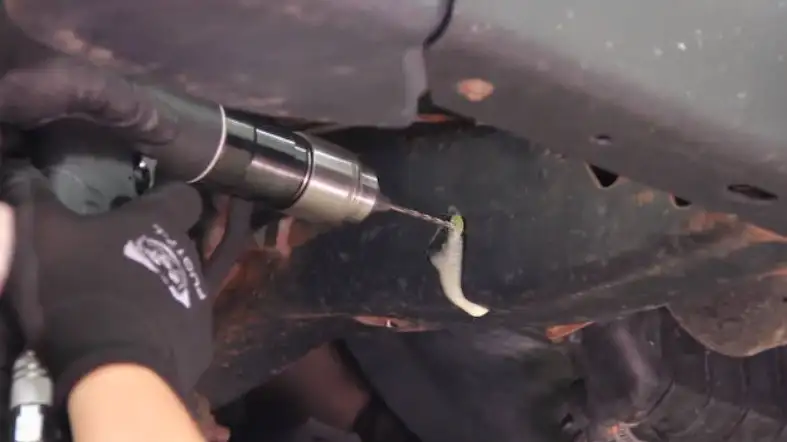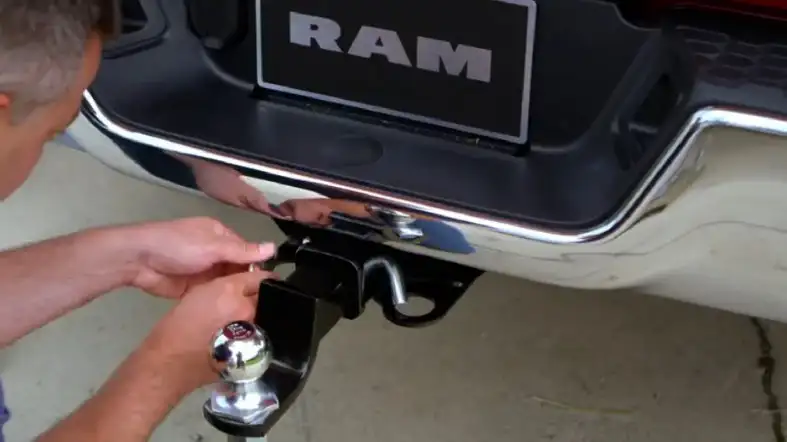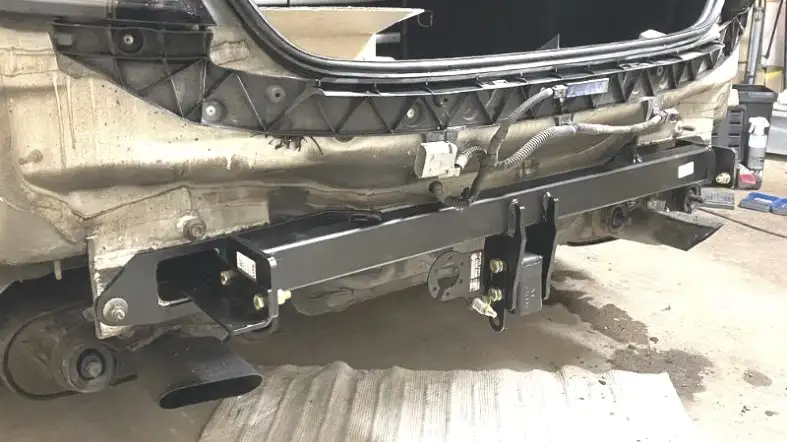Many drivers want to be able to tow a trailer at some point but may not know if their vehicle is capable of doing so.
So, Can a Trailer Hitch be Added to a Vehicle that Did not Come with one Installed?
In this blog post, we will explore the process of adding a trailer hitch to a vehicle, the benefits and drawbacks of doing so, and how to choose the right trailer hitch for your vehicle.
Can a Trailer Hitch be Added to a Vehicle that Did not Come with one Installed?
Yes, it is possible to add a trailer hitch to a vehicle that did not come with one installed.

However, it is important to note that not all vehicles are capable of having a trailer hitch installed.
In order to determine if a trailer hitch can be added to your vehicle, you will need to consult with a professional who is familiar with your specific make and model of the car.
Additionally, it is important to note that the process of adding a trailer hitch to a vehicle can be complex and may require the assistance of a professional mechanic.
How to Add a Trailer Hitch to a Car that Didn’t Come With Hitch?
If your vehicle is capable of having a trailer hitch added, there are a few steps to take to do so.
Here are the steps for adding a trailer hitch to a car:
Step 1: Purchase the Appropriate Hitch
Before you can begin installing the trailer hitch, you will need to purchase one that is appropriate for your specific make and model of vehicle.
Step 2: Prepare the Vehicle for Installation
Once you have purchased the correct trailer hitch for your vehicle, it is important to properly prepare your car for installation.
This includes making sure the area around the trailer hitch is clean and free of debris, as well as checking that all necessary hardware is present.
Step 3: Locate the Hitch Mounting Points
Locate the hitch mounting points on the car’s frame.
These are usually located near the back of the car and can be found by referring to the owner’s manual or by looking for pre-drilled holes or welded nuts on the frame.
Step 4:Position the Hitch on the Mounting Points
Once the mounting points have been located, carefully position the trailer hitch onto the frame so that it is aligned correctly.
Make sure to secure it tightly to ensure that your trailer is properly connected and safe while driving.
Step 5: Use A Drill To Install The Hitch

Using a drill, mount the trailer hitch to the car’s frame.
Make sure to use all necessary hardware and secure it tightly into place to ensure that it is properly installed.
Step 6: Install the Hitch
Now it’s time to install the hitch.
This can be done by bolting it into place or welding it to the frame depending on your specific car model.
You need to Install the hitch using bolts and nuts and make sure to secure them tightly as it will be carrying a lot of weight.
Make sure to check with a professional if you are unsure of how to properly install the trailer hitch.
Step 7: Test the Hitch
Once everything is installed, test it out to make sure that it is securely in place.
Pull on the hitch to ensure that it is securely attached and will be able to safely tow a trailer.
It’s important to note that the specific steps for installing a trailer hitch can vary depending on the make and model of the car, as well as the type of hitch installed.
If you’re unsure about any part of the process, it’s always best to consult with a professional mechanic.
How To Choose The Right Trailer Hitch For Your Vehicle?
When choosing a trailer hitch for your vehicle, there are a few important factors to consider:
Towing Capacity
The first and most important factor to consider is the towing capacity of your vehicle.
This is the maximum weight that your vehicle can tow safely, and it is typically listed in the owner’s manual or on a sticker on the driver’s side door pillar.
Be sure to choose a hitch that is rated for a weight equal to or less than your vehicle’s towing capacity.
Hitch Class
Trailer hitches are categorized into different classes based on their weight capacity and design.
The most common classes are Class I, Class II, Class III, and Class IV.
Class I hitches are the smallest and have the lowest weight capacity, while Class IV hitches are the largest and have the highest weight capacity.
Hitch Type
There are several different types of trailer hitches, including hitch balls, weight-distributing hitches, gooseneck hitches, and fifth-wheel hitches.
Each type is designed for a specific type of trailer and towing application, so be sure to choose the right hitch for your needs.
Compatibility
Not all trailer hitches are compatible with all vehicles, so it’s important to choose a hitch that is specifically designed to fit your make and model of car.
You can check the manufacturer’s website or consult with a professional to ensure compatibility.
Brand and price
Once you’ve narrowed down your options based on the factors above, you can compare the different brands and prices to choose the hitch that best fits your budget and preferences.
It’s generally a good idea to choose a reputable brand and to avoid hitches that are very cheap, as these may not be of the best quality.
Choosing the right trailer hitch for your vehicle requires careful consideration of your towing needs and your vehicle’s capabilities.
By following the steps outlined above, you can ensure that you choose a hitch that is safe, compatible, and well-suited for your towing needs.
Can You Add A Trailer To Hitch Aftermarket?

Yes, you can add a trailer hitch to a car aftermarket.
Aftermarket trailer hitches are designed to be installed on vehicles that did not come with a factory-installed hitch.
These hitches can be purchased from a variety of retailers, including automotive parts stores and online retailers.
To install an aftermarket trailer hitch, you will need to locate the hitch mounting points on the car’s frame.
These are usually located near the back of the car and can be found by referring to the owner’s manual or by looking for pre-drilled holes or welded nuts on the frame.
Once you have located the mounting points, you can position the hitch and use bolts and nuts to secure it to the car’s frame.
Pros and Cons of Adding a Trailer Hitch to Your Car
Here are some of the pros and cons of adding a trailer hitch to your car:
Pros:
- A trailer hitch allows you to tow a trailer, which can be useful for hauling cargo or equipment.
- A trailer hitch can increase the versatility and functionality of your vehicle, allowing you to transport a wider range of items.
- Installing a trailer hitch can add value to your vehicle, making it more attractive to potential buyers if you decide to sell it in the future.
- Aftermarket trailer hitches are widely available and can be purchased at a relatively low cost.
Cons:
- Adding a trailer hitch to your car can be a complex and time-consuming process, especially if you are not experienced with automotive repairs.
- A trailer hitch can add weight and drag to your vehicle, which can reduce fuel efficiency and performance.
- A trailer hitch can also reduce the clearance of your vehicle, making it more difficult to navigate through tight spaces or steep inclines.
- If not installed properly, a trailer hitch can be dangerous and could cause damage to your vehicle or trailer.
The decision to add a trailer hitch to your car is a personal one that depends on your individual needs and circumstances.
It’s important to carefully weigh the pros and cons and to consider whether the benefits of a trailer hitch outweigh any potential drawbacks for your specific situation.
How Much Does It Cost To Add A Tow Hitch?

On average, the cost of adding a trailer hitch can range from $200 to $500, but it can be more or less depending on the specific circumstances.
The cost of adding a trailer hitch to a car can vary depending on several factors, including the make and model of the car, the type of hitch being installed, and the location of the installation.
To get a more accurate estimate of the cost of adding a trailer hitch to your car, it’s best to contact a professional mechanic or trailer hitch installation service.
They will be able to assess your vehicle and provide you with a detailed quote for the installation.
Additionally, some automotive parts stores may offer installation services for a fee, so you can also check with them for a quote.
FAQs about if a Trailer Hitch be Added to a Vehicle that Did not Come with one Installed
Are All Vehicles Capable Of Having A Trailer Hitch Installed?
No. Not all cars can be fitted with a trailer hitch.
Whether or not a car can have a trailer hitch installed depends on the make and model of the car, as well as its design and construction.
Some cars may not have sufficient structural support to accommodate a trailer hitch, while others may not have the necessary mounting points or may not be designed for towing.
Is It Easy To Add A Trailer Hitch To A Car That Didn’t Come With One?
The difficulty of adding a trailer hitch to a car can vary depending on the make and model of the car and the type of hitch being installed.
In general, the process of adding a trailer hitch can be complex and time-consuming.
Especially if you are not experienced with automotive repairs.
Can I Install The Trailer Hitch Myself?
If you are comfortable with the installation process and have all of the necessary tools, it is possible to install a trailer hitch yourself.
Final Thoughts
Adding a trailer hitch to a vehicle that did not come with one is possible, but it is important to understand the specific requirements of your car before attempting to install the hitch.
We hope after reading this article, you now have a better understanding of how to go about adding a trailer hitch to your car.
With the right tools and knowledge, you can add a trailer hitch to your car safely and securely.
